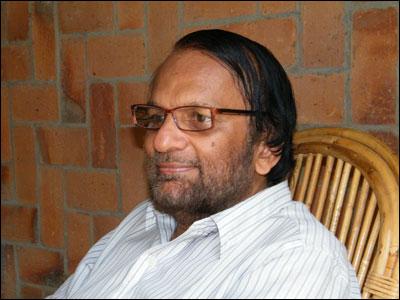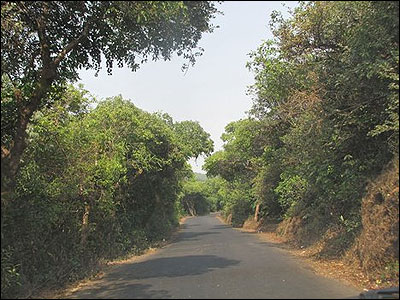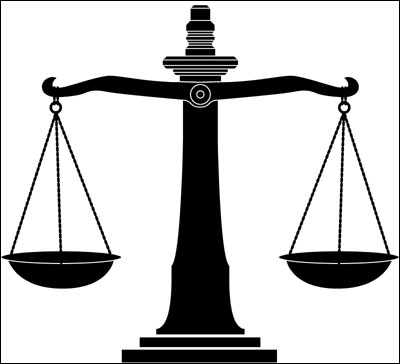 | « Back to article | Print this article |
'India is engaged in unlimited exploitation of its limited natural resources'
It was a big victory for RTI activist G Krishnan when the Delhi high court dismissed the plea of the Ministry of Environment and Forests (MoEF) against making public the Gadgil Committee report on the Western Ghats.
Justice Vipin Sanghi upheld the Central Information Commission (CIC) ruling in response to Krishnan's RTI application asking MoEF to disclose the Western Ghats Ecology Experts Panel (WGEEP) report authored by Madhav Gadgil. The HC also agreed with the CIC directive to ensure that all reports of commissions and special panels are posted on the ministry's website within 30 days of being received.
In this interview with Shobha Warrier, Krishnan talks about the implications of the verdict on the Western Ghats and other environmental issues. Excerpts:
What was the background behind the Gadgil committee report on the Western Ghats?
The Western Ghats, which ranges from Gujarat up to Nagercoil is one of the eight ecologically important hot spots in the world. But over the past few years, in the name of development, the entire Western Ghats have been getting exploited. It may be for minerals, real estate interests, or in the name of tourism, the forest cover of the Western Ghats has been undergoing a decline. And, this in turn has affected the climate, agriculture and the general economy of the states.
Naturally environmental groups have been concerned about this development which resulted in the Save Western Ghats Movement. When Jayaram Ramesh was the Minister for Environment, he agreed to set up a 14 member committee under the Chairmanship of Madhav Gadgil to identify and study the most sensitive areas of the Western Ghats, and recommend measures to be taken to save the ghats. Gadgil is a very famous ecologist and holds a Padma Bhushan.
The mandate given to the committee was to assess the current status of the ecology of the region and demarcate the areas within the Western Ghats region that need to be notified as ecologically sensitive and recommend for notification under the Environment Protection Act. And also to make recommendations for conservation, protection and rejuvenation of the Western Ghats region following a comprehensive consultation process involving people and governments of the concerned states.
Over a period of two years, the committee went around all the states, had discussions with many people and did special study on the environmental impact of the Gundiya electrical project in Karnataka and the Athirapally hydro electric project in Kerala and the ecological conditions prevailing in certain areas in Maharashtra.
Click on NEXT for more...
'India is engaged in unlimited exploitation of its limited natural resources'
Was the report supposed to be made public?
The committee submitted its report on the 30th of August, 2011. It was said then that the report would be released at a public function on the 21st September, 2011. However, on the 19th September, 2011, the committee was informed by the Ministry of Environment that the report would not be made public and that they should not discuss it in public. It upset the committee members.
Is that the reason why you decided to file an RTI application seeking its release?
I myself had made three representations to the committee on the Athirapally project. So, I was also looking forward to reading the report. Everybody has a right to know what is there in the report. Releasing the report is an important decision which will lead to more transparency and accountability in the functioning of the government. But over the years, the government chooses not to do anything about any of the reports that are inconvenient to implement.
When the report did not get released even after two months of its submission, and when the people responsible for the setting up of the committee did nothing to get the report released other than writing to each other, I decided to file an RTI request on 23-10-2011. After 45 days, I got the reply from the Public Information officer that the report was only a draft that was not ready for disclosure under RTI, which was not true. It was an outright lie, which is a punishable offence.
So, I appealed to the Appellate Authority in the Ministry as per the RTI Act. In response to my appeal, I got a letter from the authority, which did not support the public information officer's view that it was a draft report. But it said, the information would not be given under Section 8 of the RTI Act. Incidentally, under Section 8, there are many sub clauses but it dos not mention under which sub clauses, it could not be furnished. This happened when I thought the Appellate Authority would give a favourable judgement.
I was quite disappointed and thought of giving up at that stage. But I filed an appeal to the Central Information Commission. CIS held a sitting on March 23 and during the hearing, the Ministry was represented by the Public Information Officer and it took the stand that releasing the report would affect the economic and scientific interest of the states!
Click on NEXT for more...
'India is engaged in unlimited exploitation of its limited natural resources'
In what way can the report affect the economic and scientific interests of the states?
When the question was asked, he could give any justification to show that the report would affect the interests of the states. He said that it would slow down the economic development and growth process of the area. His argument was that if you stop an activity like mining or the construction of hydro electric dams, it would slow down the economic growth.
Interestingly, at the three different times, three different arguments were put forward by the Ministry.
The CIS judgement was to make the report public. Why do you call it a remarkable or landmark judgement?
Not only this report; the judgement said that when a committee studies a problem using public money, people have a right to know. I quote Gadgil, "the full CIS order is an outstanding argiment on environment vs development issues and on people's role in decision making process. It deserves to reach people everywhere."
What we are doing now is unlimited exploitation of limited resources.
Now that you have seen the report, what does it mainly recommend?
In fact, the Gadgil committee says the entire Western Ghats is ecologically sensitive. Depending upon the ecological sensitivity, it has been divided into Category 1, 2 and 3. In categories 1 and 2, no development activities at all can take place. Like no mining, no construction, etc, and it should be left as it is. Wherever licensed mining is taking place, in five years, it should be stopped.
It also states that there should be no more development of hill stations in the Western Ghats. Also, no more dams or hydroelectric projects.
Were you expecting the Ministry to approach the Delhi High Court?
Yes, we knew the government would approach the court.
Are you elated by the Delhi High Court judgement ordering the Ministry to make the Gadgil Committee report public?
Not particularly. I was expecting such a judgement. What surprised me was, it came in two weeks. I had filed a similar suit in the Kerala high court when the State Electricity Board did not follow the Information Commission's order, and it has been there for the last five years.
What I am happy about is, the Court has used strong words against the Ministry. They even said that they suspected that the Ministry wanted to conceal the report. They also said that the report should be in the public domain and only after wide public consultations or debate, should policy decisions be taken. It means the public should also be involved in the the decision making process.
Click on NEXT for more...
'India is engaged in unlimited exploitation of its limited natural resources'
Is there any chance of implementing what the report recommends?
Ideally, we should be implementing the report. Will it? I am pessimistic. Because the government's decisions do not depend upon people's interests; it is often influenced by powerful industrial lobbies. There is strong opposition from state governments also. There are a lot of vested interests that get adversely affected.
The report also says that the entire Western Ghats should be brought under a new apex body for all the states together. Now, the ghats is under the control of various states and their forest departments. Nobody wants to lose control or power. Already, Kerala has objected to the entire Gadgil report. For politicians, it is like, there is so much of forest there. Why can't we build roads and townships?
The sad aspect is, nobody has seen or fully read the report. It is a report that needs wide analysis.
Will the activists be able to put pressure on the government or the Ministry so that the suggestions are implemented?
That is the most disappointing part of the entire thing. We are missing a golden opportunity. Environmental activists are not doing anything other than talking to each other. They are not putting any pressure on the government or educating the people or discussing the issues with the people. The environmental groups are a divided house and the government is also aware of it.
It is a landmark judgement, one of the most thoughtful on environment, so, we should not let go of this golden opportunity. Let us not throw the baby out with the bath water.


